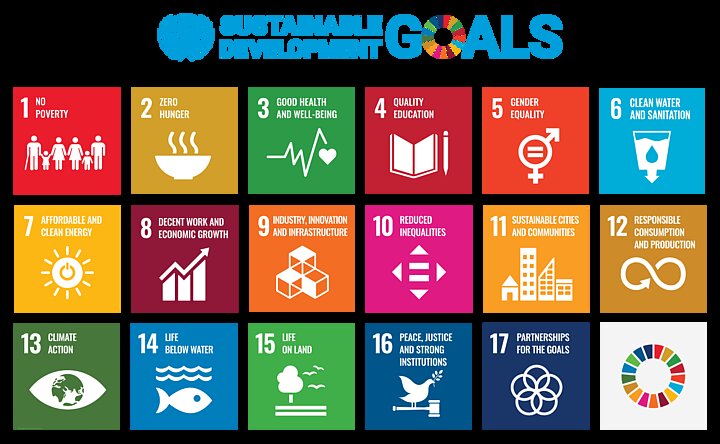
The Sustainable Development Goals (SDGs), also known as the Global Goals, were adopted by the United Nations in 2015 as a universal call to action to end poverty, protect the planet, and ensure that by 2030 all people enjoy peace and prosperity. Leaders from 193 UN member countries signed the document Transforming Our World: 2030 Agenda for Sustainable Development.
They are divided into 17 goals, which relate to social, economic and environmental aspects. The 17 SDGs are structured around the five pillars of the 2030 Agenda: People, Planet, Prosperity, Peace, and Partnerships. These 5 Ps highlight how the SDGs are an intertwined framework instead of a group of solo goals. The progress on one P must balance and support the progress on another.
SDGs stress everything from zero poverty, zero hunger, good health, quality education, gender equality, clean water and sanitation, and affordable clean energy, to decent work and economic growth, innovation, reduced inequalities, sustainable cities, responsible consumption, climate action, unpolluted oceans and land, and partnerships to achieve the goals.